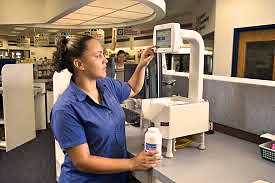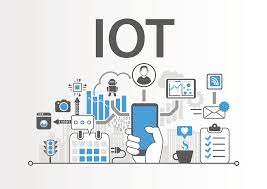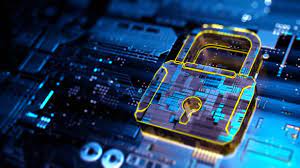The Ever-Expanding Role of the Pharmacy Technician
- By
- Jonathan Jacobs
Role of Pharmacy Technicians
A pharmacy technician is someone who works under the direct supervision of a licensed pharmacist to process prescriptions, dispense medication, perform pharmacy-related functions, and provide information to customers. That’s the technical explanation of the role a pharmacy technician plays…however! We all know that in many Community/Independent pharmacies be it retail OR closed door….we actually call them “quarterback” or your “starting pitcher” to coin a few sports phrases. In-short they are your primary contact and most customer facing employee within your pharmacies’ operation. A solid pharmacy tech is a ‘must-have’ to acquire any level of success in running your own pharmacy.
As the field of pharmacy evolves, the role of the pharmacy technician is shifting into areas that require more specialized skills and knowledge. Current pharmacy practices involve the pharmacy technician in prescription dispensing, data input, insurance billing, inventory maintenance, packaging, purchasing, compounding sterile and non-sterile products, and more.
However, the changes brought about by the COVID-19 pandemic present new challenges as well. Pharmacy technicians are put under immense stress in their pharmacy due to growing patient needs. Additionally, pharmacy technicians put themselves into harm’s way while working in a high-risk environment for infection. Patients with complex health needs require services and support from a wide variety of health care providers, and technicians are more than ever being called on to fulfill a variety of these needs. The demand for certified pharmacy technicians is expected to increase as job responsibilities become more complex. There is also an increase in the need for technicians within settings that require more specialized training and expertise.
Most Common Functions Pharmacy Technicians Perform
- Accurately prepare and distribute patient medications;
- Perform calculations;
- Prepare sterile medicines including those used to treat cancer;
- Collect accurate patient information
- Process third party billing claims and assist with prior authorization completion;
- Work directly with patients to obtain medication histories and reconciliation;
- Assist in the management of investigational drug studies;
- Use technology to help maintain accurate patient records, medication inventory, and orders, and;
- Ensure compliance with regulatory requirements.
Once again…above is the “technical” explanation of the basic pharmacy-tech functions. The unmentioned in almost all my research on this piece are the social and interpersonal skills required. Speaking with your customers daily. Knowing and fostering relationships with the key staff of the local doctors and prescription writers in the area. Working with all your pharmacies vendors and their delivery people and administrative staff. What if you have a large front-end in your retail operation?? Working a POS system as well as thorough knowledge of ALL your OTC items. The list is long and finding someone skilled in everything is nearly impossible….but oh so valuable once you do!
Pharmacy technician employment is anticipated to develop quickly because of the growing use of medications as a treatment for patients. Additionally, a larger amount of middle-aged and elderly people — who typically use more healthcare services — will drive the need for technicians in all practice surroundings. View technician employment trends from the Bureau of Labor Statistics.
With the appropriate amount of training and experience, pharmacy technicians may be promoted to supervisory roles, may seek specialization (e.g., sterile compounding, informatics), or may pursue further education and training to become a pharmacist. Technicians can gain specialized skills in areas such as sterile compounding, pharmacy automation, hazardous drug management, revenue cycle management, and health information systems. An ASHP survey of pharmacy practice managers revealed 56 percent of organizations offer career advancement opportunities for technicians. In an ASHP survey of pharmacy technicians, 81 percent indicated they expect to perform duties of a pharmacy technician for five or more years.
Types of settings Pharmacy Technicians perform within
Hospitals and Health Systems
In hospitals and health systems, pharmacy technician jobs involve patient care. Pharmacy technicians in health care facilities, such as hospitals and ambulatory clinics, often have added responsibilities in addition to filling prescriptions for patients and delivering them daily. Responsibilities include preparing sterile medications, verifying the work of other technicians, and operating pharmacy automation systems. With additional training, activities may also include obtaining medication histories, facilitating transitions of care, diversion prevention, and medication assistance programs or supply chain management. Numerous advanced or specialized technician roles exist in these settings (e.g. Pharmacy Purchaser, Lead Pharmacy Technician, and Medication Reconciliation Technician). If you’re the kind of person who likes working directly with patients and other healthcare providers and being an active part of a medical team, pharmacy technician jobs in hospitals are a great choice.
Other work settings for pharmacy technicians include:
- Community Pharmacies
- Many pharmacy technician jobs are available in community pharmacies such as the ones you find in your local grocery or drug store. Working in community pharmacies means working with people. Technicians receive written prescription requests from patients and perform medication reconciliation. They also may receive prescriptions sent electronically from doctors’ offices, and in some states, they are permitted to process requests by phone. They must verify that the information on the prescription is complete and accurate. To prepare the prescription, technicians retrieve, count, pour, weigh, measure, and sometimes mix the medication.
- Mail Order Pharmacies
- Mail order pharmacies present an opportunity to service a wider range of customers than local community pharmacies. Perhaps the most solitary of the three workplaces, mail order is great if you’re looking for pharmacy technician jobs where you can work independently or behind-the-scenes.
Getting the Job
There are multiple approaches to obtain education and training to become a pharmacy technician including formal and standardized training and education programs, on-the-job training, and online courses. The following components play a role in determining your pharmacy technician opportunities and salary:
- Education Level — Having a higher level of education, such as completion of an accredited technician training program, may make you a more attractive job candidate, help you advance quicker, and help you boost your pharmacy technician salary.
- Certification — Depending on your employer, pharmacy technician certification may be required. Certification assures employers that your skills and knowledge meet high standards for professional practice and patient care, and your pharmacy technician salary will likely reflect this.
- Geographic Location — Where you live plays a part in determining your salary. Employers in your area may pay more or less than the average salary for a pharmacy technician due to the local economy and the cost of living in your city or town.
- Type of Employer — If you work at a hospital or a large retail chain, they are often able to pay larger pharmacy technician salaries than smaller independent pharmacies.
Pharmacy Technician License Requirements by State
As pharmacy technicians take on increasingly important roles and responsibilities, the regulations governing the profession continue to strengthen.
Organizations such as the Pharmacy Technicians Certification Board (PTCB) are able to provide a national standard for technicians, but in the end, each state determines its own minimum requirements for working as a pharmacy tech.
Current and aspiring techs unsure of their state’s laws can consult the following reference guide that explains how to become licensed as a pharmacy technician in each state. We at Point of Care Systems care deeply about everyone’s health and safetly and urge you to follow local rules and guidelines regarding wearing face coverings and maintaining social distancing.
Thank You,
Point of Care Systems
Be sure to also review the additional resources we’ve put together for these rapidly changing times and work landscape during this Coronavirus crisis:
Community Pharmacy has new purpose and lifespan thanks to: Coronavirus?
In a Time of Only Essential Businesses – Community Pharmacy is There
Pharmacy Groups Jointly Advocate for Expanding Pharmacists’ Role During Pandemic-To Learn more about this topic click here





